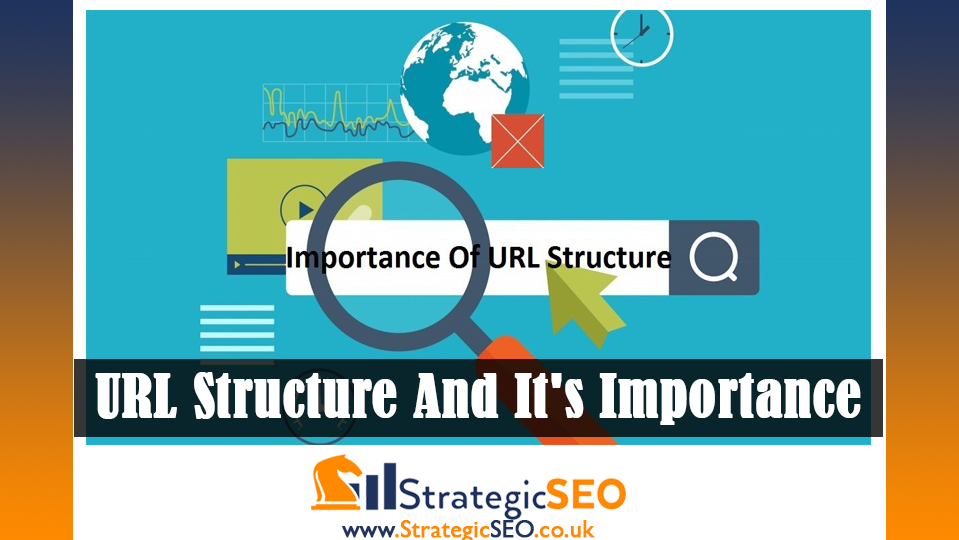URL Structure And It’s Importance
If it hasn’t been said a thousand times before we’ll say it again, when it comes to SEO it is important to bear in mind that there are several factors that make up it’s form. Two Key categories that make up it’s form up On-Page SEO and Off-Page SEO, these can both be further sub-categorised into smaller fragments which help to make your SEO strategy relevant and successful. More importantly if approached in the right way can help to improve organic search and ultimately improve your SERPs. URL Structure is an important sub category of On-Page SEO which can sometimes be missed or deprioritised, with that in mind our SEO experts have put together this helpful guide on what URL Structures are and how important they are for your SEO strategy.
-
What Is A URL?
URL is abbreviated for the term “Uniform Resource Locator” – so what is this? To be put simply a URL is a web address used to locate a specific site or resources on the internet. Without this you will be unable to find what you are searching for. Search engines crawlers will use your URL to quickly locate and effectively scan your website.
It is important to note that domain names and URL’s are not the same thing and are often confused or misinterpreted. To be clear the domain name is a part of a URL often it is the name of the website you are trying to locate. Computer networks and servers rely on IP addresses which is made up of numbers and letters in order for them to be able to talk to each other, now realistically it is unfeasible for the average online user to compute this, hence domain names and URLs which are used to hide IP addresses and of course designed to make it easier and more memorable.
An example of this is below:

A URL is an inclusion of the domain name along with other detailed information that will precisely direct you to specific page within a website. -
Why Is URL Structure Important In SEO?
Believe it or not first impressions and readability is a big determining factor of a URL. There are several reasons why your URL structure is important namely Google takes this into consideration when ranking your website. Search engine crawlers will use your URL to navigate and identify what each page is about and if its is not structured in a clear and concise manner using specific keywords it can be detrimental to your ranking factor. Not only is this important for Google it is also important for your visitors, if not clearly structured people will find it confusing and misinterpreting with a high possibility of increasing your bounce rate.
-
What Are The Benefits Of URL Structure?
There are three main benefits to having a structured URL and each of these help towards having a good SEO strategy.
♦ Improve User Experience
As mentioned above having a structured URL is beneficial for both search engines and humans, the more structured and keyword specific your URL is the easier it is to understand what the website is about, also making it user-friendly. A URL that is structured accurately is what we call a “semantically accurate URL”, this means that the URL clearly defines and explains the destination without any confusion or misinterpretation. An example of this is below,

With this example above you can see a clear title tag along with a clear and concise URL, for arguments sake even if the title tag were to be hidden the semantically accurate URL will still provide a human with a clear idea of what the destination page is about, thus increasing user experience by making it clear about what they are expected to see when they click on the link.♦ Improved Ranking
To be clear URLs on their own are not a major ranking factor, however combined with other on page factors along with keyword use attribute to improved ranking. It is important to understand that whilst a URL cam improve a website visibility, along with keywords it is only a minor determining factor and is worth noting that it can be very unuseful to overuse keywords just to create URLs that contain keywords in them . That being said it is still worth placing specific keywords in your URL that are relevant and make sense.
♦ Linking
An appropriately structured URL can also serve great purpose as a link for sharing information through forums, blogs, social media networks and other viable online venues. Having a clearly structured URL is great for linking, as when pasted on various channels has the ability to increase website traffic through other avenues. Which in-turn increases website ranking.
-
SEO Best Practice Checklist For URLs
Creating the perfect URL to fall in line with SEO best practices is not as difficult as it may seem and there are several contributing factors that can be taken into consideration to ensure you are walking the right path.
♦ Be Careful When Selecting A Domain Name: When choosing a domain name try to use a top-level domain name where possible, top-level domain names are “.com” and “.co.uk” as apposed to “.biz”, “.net” etc. Something as little as this can help contribute to ranking, although does not directly impact ranking.
♦ Include Keywords In Your URL: Keywords are what a user will use when searching for content, thus it is ideal that you use the most relevant and specific keywords related to that topic. Including relevant keywords in your URL will definitely improve ranking of the page, as well as help identify to a user that what they are clicking is relevant to what they searched for.
♦ Use Hyphens And Lower Case Letters: For readability purposes it is better to use hyphens instead of underscores to separate words. When creating your URL ensure that you do not use underscores, spaces or any other characters to separate words. In addition, try to make sure that your URL is in lowercase as apposed to mixed lower and upper case, the reason for this is that certain servers cannot read this and will output a 404 error.
♦ Try To Maintain A Short URL: The character limit for URLs is 2083 characters, this is in order for it to render correctly in all browsers. However, it is good practice to have a URL with 100 or less characters. That being said having a URL with more characters is not an issue for search engines, it just has an effective on a users experience. Shorter URLs are easier to remember and easier to copy and paste.
♦ Try To Include Title of Page in URL: This is probably one of the most obvious factors, however you will be surprised at how many people choose to ignore this. The title of the should be included in the URL as not only does is show clarity as to what a user is about to click it also increases the chances that a user will click on the URL.
For Example: https://strategicseo.co.uk/url-structure-and-its-importance or https://strategicseo.co.uk/blog-information
If you wanted to know about URL structures which of the two URLs are you more likely to click on? It should be the first URL. This is just a small example as to the dofference between including the page title and not.
Hopefully you should have a clearer understanding of URL structures and the importance it has on your SEO strategy, and although not so much a major determining factor still a very important one. As mentioned this factor combined with many other On-Page and Off-Page factors really help towards having a solid SEO strategy and keeping you on the right track. SEO can be time consuming and somewhat confusing trying to keep up to date with the latest and newest updates, however that does not mean you need to panic. If you would prefer to have someone else to manage your SEO strategy including your URL structure get in contact today with one of our leading UK SEO specialist.









